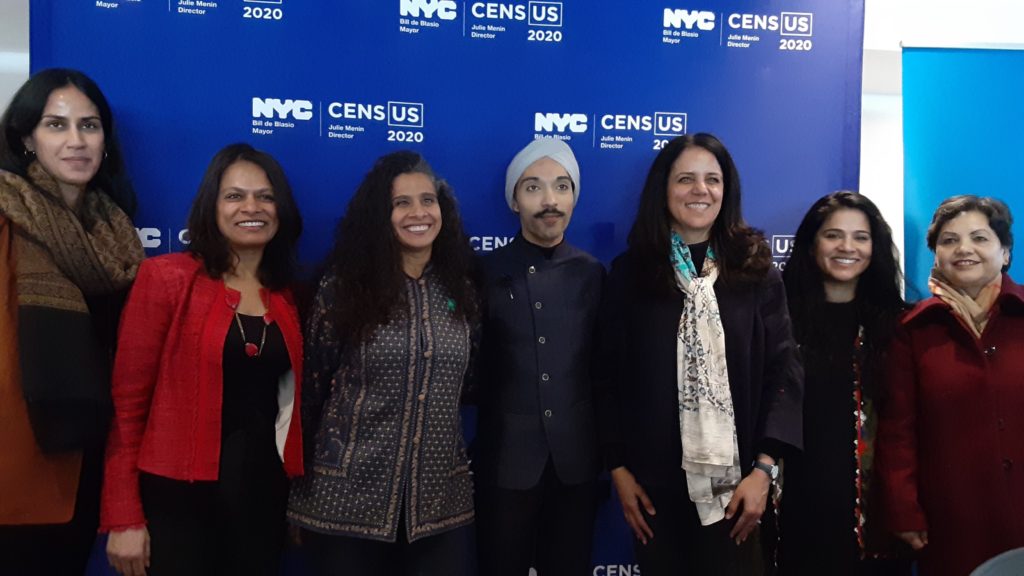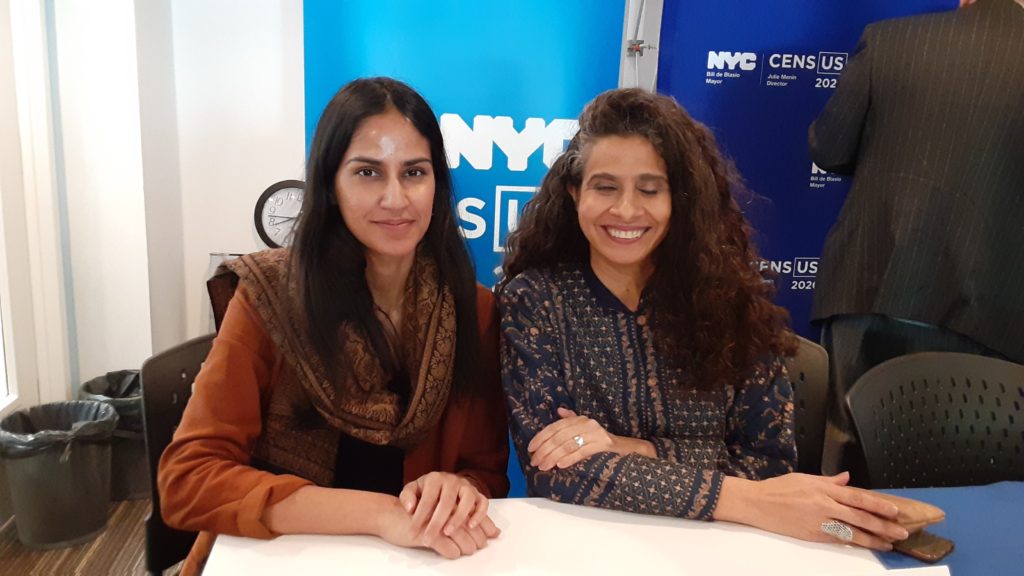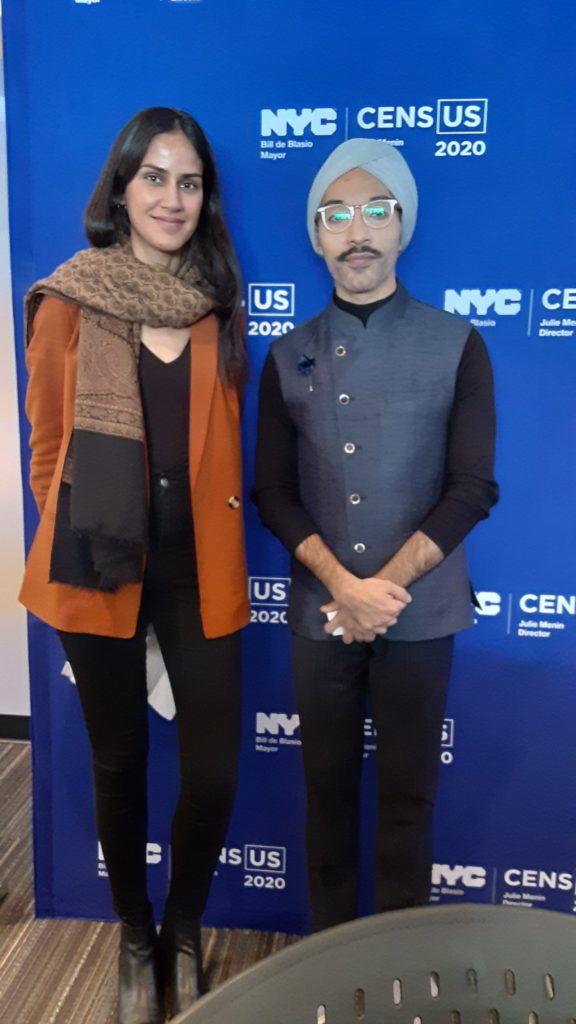4120 people reached on FB Lassi with Lavina page – 282 engagements – 10 Likes – Facebook insights

Telling the Indian-American Story through Census 2020
No longer in the Shadows…every single person counts.
[dropcap]I[/dropcap]t’s time for every single person in America to be counted – citizens, non-citizens, illegal immigrants and undocumented workers. Regardless of age, financial or legal status – time for even the nameless, faceless dwellers of illegal basement homes to step out of the shadows and be counted.
It’s the US Census which takes place every decade, and it is mandated by the Constitution. This will mark the 24th time that the country has counted its population since 1790. It is imperative that every single South Asian is counted. Their future depends on it because the 2020 Census will determine congressional representation, inform hundreds of billions in federal funding, and provide data that will impact communities for the next decade.
“What is at stake for the South Asian community is money, power and respect,” said Meeta Anand, Senior Fellow, New York Immigration Coalition. “But the South Asian community faces certain barriers that need to be overcome to ensure that it gets the resources and the representation it so richly deserves.”

[dropcap]T[/dropcap]he occasion was a Census briefing that she co-hosted in Manhattan with Amit Singh Bagga, Director, Mayor’s Census Office, and several activists from South Asian community organizations, including Aliya Bhatia, Census Manager, ABNY (Association for a Better New York) , Mariam Rauf, Census Outreach Manager, Asian American Federation, Ahsia Badi, New York State Census Director, Emgage USA and Annetta Seecharran, Executive Director, Chhaya Community Development Corporation
The irony is that while the Asian Americans are among the fastest growing ethnic groups across the United States, they are the most likely to be undercounted.
“If we are not fully counted in the census, we will lose out on our fair share and what is rightfully ours,” said Amit Singh Bagga. “Following the 2010 census, the state of New York lost seats in the House of Representatives. We stand to lose up to two congressional seats following the next census if we don’t have a complete count. So it’s really critically important that, in order to get the resources that are rightfully ours and the representation that is rightfully ours, that we are counted.”
So what’s holding the community back? It is definitely the fear factor. The South Asian community is by no means monolithic – it’s made up of diverse people and comprises also the elderly, low-income individuals, undocumented workers with children, people living in illegal basement apartments or those who are not English-proficient. As Aliya Bhatia, Census Manager, ABNY (Association for a Better New York) pointed out one of the primary fears around the census is the privacy issue since there are growing undocumented, and multi status households in the South Asian communities.

[dropcap]B[/dropcap]agga emphasized that the citizenship question is not on the census and it was important to let the community know that their housing or legal status did not matter, – whether they lived in an illegal basement or with ten people in a small apartment. “Every single person can and must do the census, nobody else has to know if you’ve done it. You can go online and do it yourself. All of your responses are completely protected by one of the strongest federal privacy laws that exists – Title 13.”
He pointed out the many efforts are being made by the mayor’s campaign for an accurate count with a $40 million investment in the census this year, the largest by any city in the country. This includes a $19 million Complete Count Fund, which is a community-based grants program for 157 different community organizations – approximately 12% of the organizations are serving the South Asian community. The Census bureau is also providing video and printed guides in 59 non-English languages, as well as a video in American Sign Language.
The city has allocated $ 8 million towards media campaigns including $ 3 million specifically for ethnic media to fight the fear and misinformation of the community to participate freely in the census. As a public service, the very popular new Congresswoman Alexandria Ocasia-Cortez and the Broadway icon Lin Manuel-Miranda have also created video messaging for the public. The idea is to get everyone to participate, no matter their immigration status.
Another incentive for South Asian communities is the possibility that with larger numbers in the census count, it could lead to Diwali or Eid being made a school holiday.
So by March 20, every household in the US will have received the invitation to complete the census, either online or by paper or on the telephone. April 1 is regarded as Census Day. As one community organizer put it when she is asked who should be counted, “The children who were born today. The people who did not die today. Everyone should be counted, regardless of their status.”
Alexandria Ocasia-Cortez and Lin Manuel-Miranda say, Get Counted, NYC!
[dropcap]A[/dropcap]nnetta Seecharan, Executive Director of Chhaya, a community development corporation, which assists South Asians facing housing problems, said, “ I think that New York City believes that having trusted entities delivering the message is probably the most effective way, especially in light of all the reasons our community has to not trust the government.”
Aliya Bhatia said that positive messaging often works better than negative messaging, telling people that the census brings money and resources to the communities they live in. This is the first census since social media came into play so she suggests not only using the traditional forms such as houses of worship but all the social media platforms too.
“The census is about respect, it’s about the government and the entire country, and all of us being able to know who exactly we are. The census tells the story of who we are,” says Amit Singh Bagga. “The South Asian community in New York City today is very different than it was 50 years ago when my parents first came to New York. Where we live, what languages we speak, the jobs that we do is much more diverse, it’s much bigger. But we can’t tell that story effectively and we can’t tell that story completely if we’re not counted in the census.”
(This article was first published in my weekly column ‘India in America’ in CNBCTV18.com)
